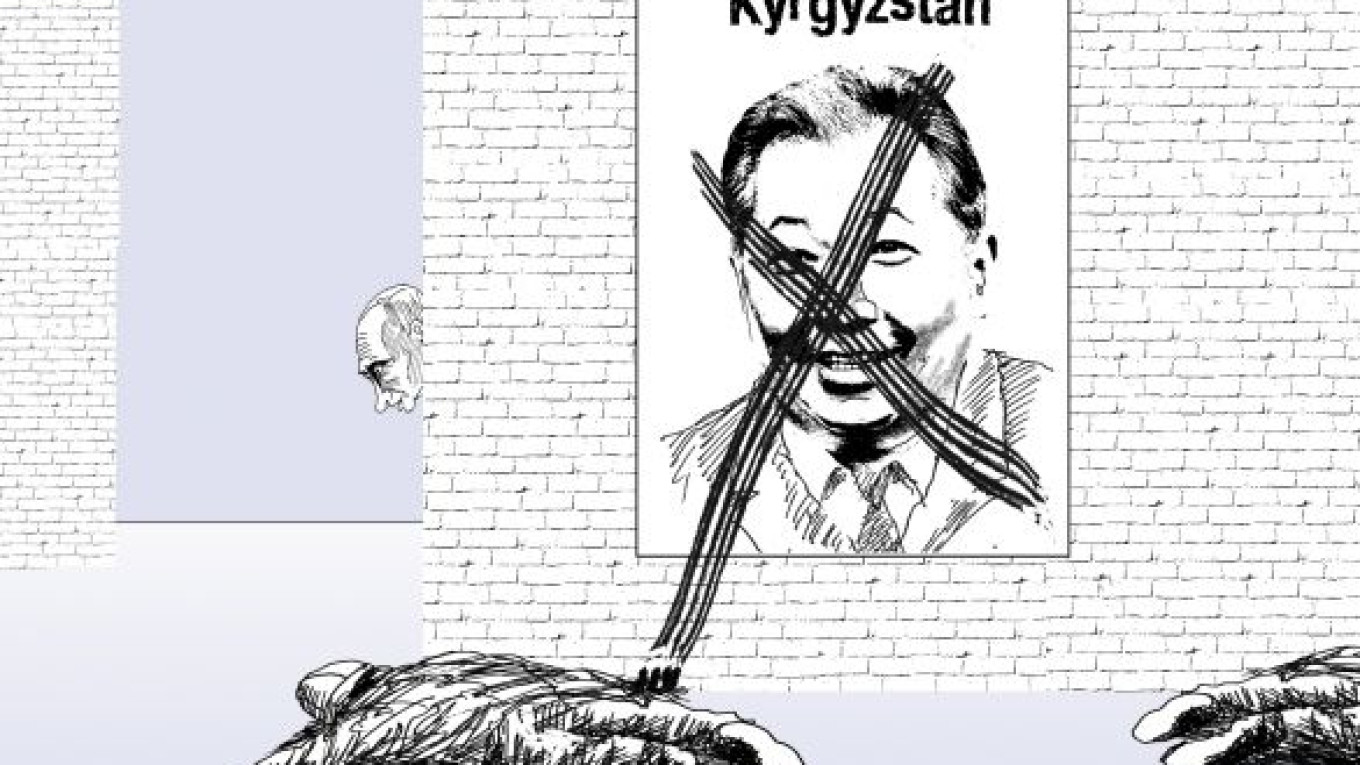The apparent regime change in Kyrgyzstan will either prove that the country is destined to regain its image of an “island of democracy” in Central Asia or that it is doomed to fail because of weak political institutions and deep social divisions.
After five disastrous years under President Kurmanbek Bakiyev’s authoritarian rule, revolutionary change is desired and feared at the same time. It is unclear whether the provisional government will be able to curb corruption and implement effective political and economic reforms. Before it can even think about tackling those tasks, however, the provisional government has to defeat Bakiyev’s attempts to reclaim power.
The 2010 revolution was sparked by spontaneous gatherings of angry crowds who demanded Bakiyev’s resignation. During his autocratic reign, Bakiyev suppressed political opposition and made an already poor country even poorer. According to the International Monetary Fund’s 2009 rating, the per capita income of Kyrgyzstan is $2,227, which is ranked No. 138 out of 181 countries below Yemen and Sudan. In addition, more than a dozen political opponents and journalists have been killed in the past five years. Owners of small and medium-sized businesses were forced to pay stifling taxes. Free media ceased to exist, while tariffs for mobile communication and utilities skyrocketed.
According to media reports, Bakiyev, his son Maxim and members of their inner circle had financial control over 80 percent of the economy. Thus, it came as no surprise that Bakiyev was ready to use brutal violence to protect his own hold on power. But his possible use of police and professional snipers to shoot at the civilian population, leading to more than 80 deaths, still shocked many. Although the head of the provisional government, Roza Otunbayeva, promised that Bakiyev would not be persecuted if he resigns peacefully, other members of the new government have called for a international investigation of the April 7 atrocities.
Prime Minister Vladimir Putin was the first politician to extend support to the provisional government. He criticized Bakiyev’s rule and recognized the new government’s legitimacy. Putin was also the first leader to offer help in preventing a further spread of violence in the country.
In contrast, official U.S. support to the provisional government was offered only on April 10 by Secretary of State Hillary Clinton. By that time, however, Otunbayeva had already managed to appoint key government members and calm Bishkek streets from looting. To complicate matters, Washington still views Bakiyev as the legitimate ruler since he has not given up power and, technically, still remains the country’s president.
At this point, Kyrgyzstan is leaning more toward Russia than the United States. Provisional government member Almazbek Atambayev has already visited Moscow, and other provisional government officials said they would welcome further help, including military assistance if violence continues.
Members of the opposition had sought Russia’s support even before the riots. They also turned to the United States for assistance, but Putin was the first to offer support.
To be sure, there are strong pro-Western members in the provisional government, including Otunbayeva, but the United States seems to have missed the opportunity. It is by no means lost for good, but it will take a considerable effort on Washington’s part to build good relations with Otunbayeva’s coalition.
The provisional government’s calls for closer ties to Moscow resonate with the people. They realize that the provisional government needs Russia’s support to reinstate stability.
The provisional government still faces a substantial risk of more riots and an armed confrontation with Bakiyev supporters. Bakiyev is reportedly trying to put together forces in the southern parts of the country to be used to attack Bishkek and reclaim power. According to Ruslan Isakov, the son of the defense minister in the provisional government, Bakiyev is hiring foreign fighters to boost his forces.
Is it difficult to say whether Kyrgyzstan will be stabilized or whether it will be doomed to remain a failed state. For now, the provisional government needs international support to effectively reform state institutions and resist threats still emanating from Bakiyev.
If Kyrgyzstan is eventually successful in restoring order, the 2010 revolution could inspire opposition forces in other Central Asian countries to challenge their authoritarian governments. But if Kyrgyzstan’s democratic revolution fails — again — many in Central Asia will prefer authoritarian stability over democratic chaos.
Erica Marat is author of “Military and the State in Central Asia.”
A Message from The Moscow Times:
Dear readers,
We are facing unprecedented challenges. Russia's Prosecutor General's Office has designated The Moscow Times as an "undesirable" organization, criminalizing our work and putting our staff at risk of prosecution. This follows our earlier unjust labeling as a "foreign agent."
These actions are direct attempts to silence independent journalism in Russia. The authorities claim our work "discredits the decisions of the Russian leadership." We see things differently: we strive to provide accurate, unbiased reporting on Russia.
We, the journalists of The Moscow Times, refuse to be silenced. But to continue our work, we need your help.
Your support, no matter how small, makes a world of difference. If you can, please support us monthly starting from just $2. It's quick to set up, and every contribution makes a significant impact.
By supporting The Moscow Times, you're defending open, independent journalism in the face of repression. Thank you for standing with us.
Remind me later.


